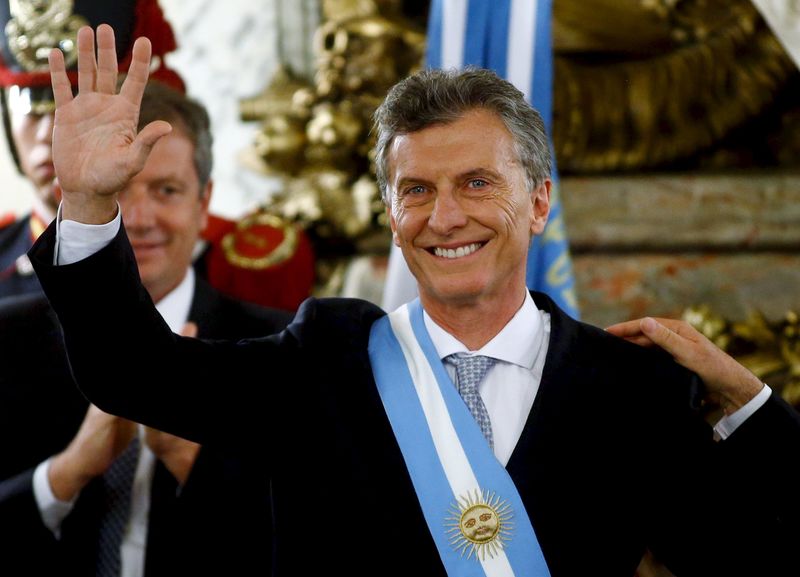By Hugh Bronstein
BUENOS AIRES (Reuters) - Argentina will announce a much anticipated relaxation of currency controls on Wednesday, the government said, setting the stage for a weakening of the local peso and an increase of soybean shipments from the world's No. 3 exporter.
President Mauricio Macri, elected last month and inaugurated on Thursday, has promised to loosen state controls on Latin America's No. 3 economy and allow the local currency to weaken in a bid to increase exports and spark economic growth.
"The lifting of currency controls will be announced" at a 6 p.m. (2100 GMT) press conference, a government statement said. It did not specify to what extent Economy Minister Alfonso Prat-Gay will announce freer access to U.S. dollars.
"This is the right and long overdue move," Goldman Sachs (N:GS) analyst Alberto Ramos said of the expected devaluation.
Farmers in the grains-exporting powerhouse have been waiting for the currency to weaken before selling stockpiles of soybeans that had piled up under Argentina's previous leader Cristina Fernandez. Fernandez used central bank reserves to prop up the peso, a policy Macri has vowed to change.
Argentina's official peso
For that to happen Macri is expected to allow businesses and individuals freer access to U.S. dollars, which are preferred by savers seeking a safe haven from high inflation and financial volatility that has rocked Argentina in recent decades.
Most transactions in Argentina are already conducted at some point between the official and black market foreign exchange rates. To protect waning central bank reserves, Fernandez clamped down on access to U.S. currency through a set of controls known collectively as the "cepo".
Macri has promised to harness Argentina's vast natural resources and revive an economy that has long fallen short of its potential. If he gets it right, investment could stream into the country, given its vast Pampas grains belt, highly educated work force and some of the world's abundant shale oil deposits.

The central bank said it hiked interest rates on its short- and medium-term fixed deposits in pesos by 8 percentage points, as the market braced for a likely sharp devaluation. The issuance of fixed deposits was the first by the central bank under its new chief Federico Sturzenegger.